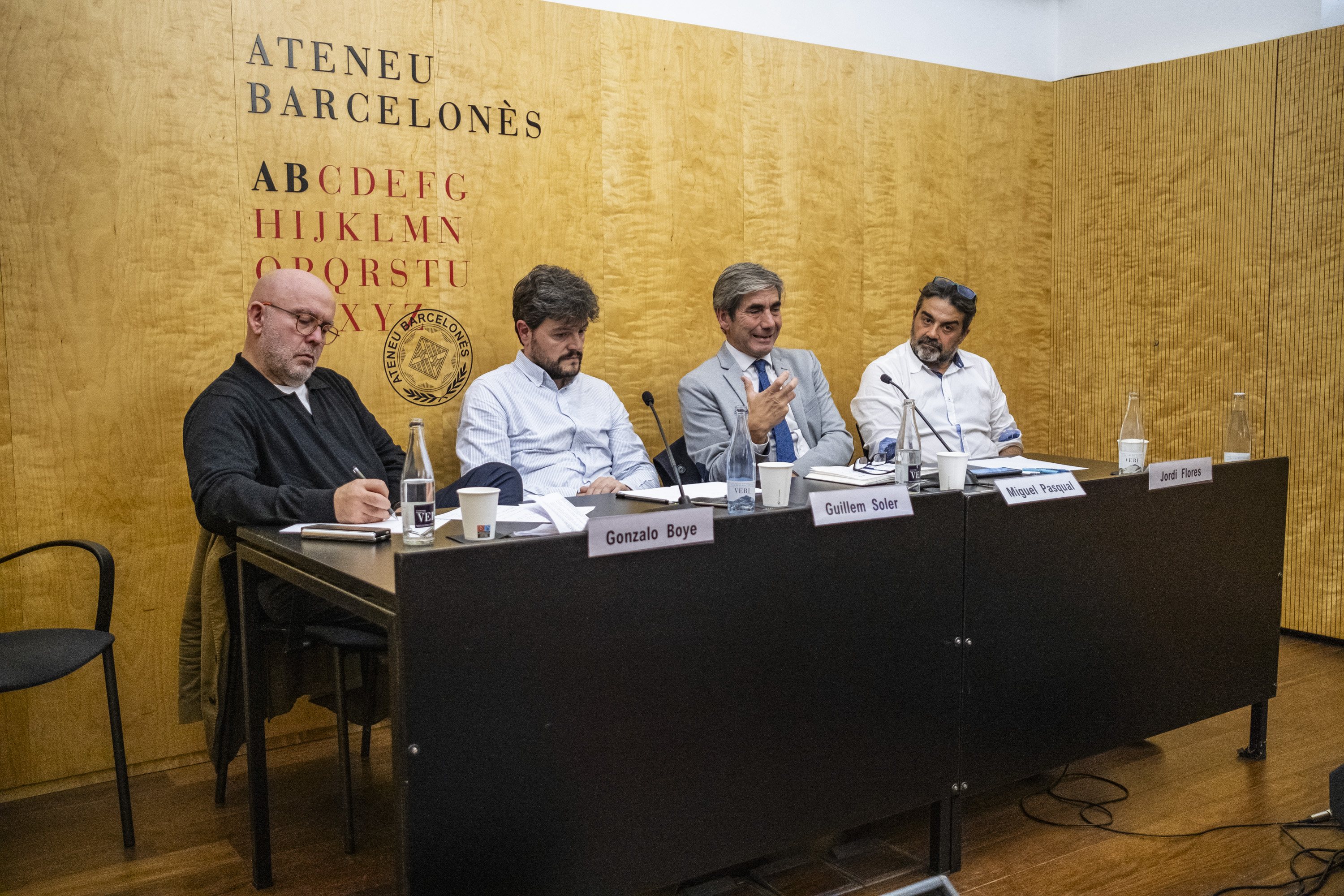Six judges of first instance courts in Barcelona have voted not to support the statement adopted by the the judge dean of Barcelona, and earlier by several Spanish judicial associations, which opposes the political agreement between the Socialists (PSOE) and pro-independence party Junts, which announced a review of cases of lawfare, or - as it defined the term - the judicialization of politics. The judges gave their view at the board of Barcelona judges, which met this Thursday morning, with 37 of the 61 civil judges attending, and at which 31 voted in favour of the proposal by the dean, Cristina Ferrando. Of these six jurists, five added their support to a critical letter presented by judge Guillem Soler Solé, member of Àgora Judicial, one of the few judicial associations that has not subscribed to the judges' manifesto, published on November 9th.
Guillem Soler and the five first-instance judges thus follow the initiative of the Barcelona Audience judge, Montserrat Comas, who submitted a dissenting vote to the board of the Catalan High Court (TSJC) chamber of governance, of which she is a member, when that group of judges considered the proposal to add their support to the judicial associations' manifesto last Friday. The president of the TSJC's social law chamber, Andreu Enfedaque, joined her in this dissenting stand. According to Comas and Enfedaque, the TSJC does not have competence to take stands on political agreements. In addition, they emphasize that the proposed amnesty law, in the end, says nothing about lawfare, one of the major criticisms made by different judicial boards, as well as the Supreme Court and the highest governing body of Spanish judicial power, the General Council of the Judiciary.

